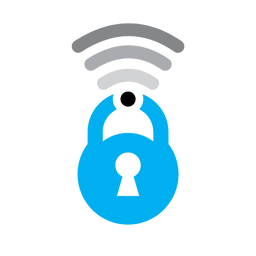Decentralized Identity: The Future of Online Authentication

Introduction
In today's digital age, identity management is a critical concern. Traditional centralized systems are increasingly vulnerable to hacks, data breaches, and identity theft. Enter decentralized identity—a groundbreaking approach that promises to redefine online authentication. This article explores how decentralized identity systems can offer a more secure and private way of managing online identities.
What is Decentralized Identity?
Decentralized identity, often abbreviated as DID, is a new paradigm for digital identity that gives individuals control over their own information. Unlike centralized systems, where a single entity verifies and stores your data, decentralized identity relies on blockchain technology to distribute the responsibility and control of identity verification.

The Shortcomings of Centralized Identity Systems
Single Point of Failure
In centralized systems, all user data is stored in a single database. This creates a single point of failure, making it a lucrative target for hackers.
Lack of User Control
Users have little to no control over their data in centralized systems. Once you provide your information, it's stored and managed by the service provider, often without your explicit consent.
Data Breaches
Centralized systems are susceptible to data breaches, putting sensitive information like social security numbers, financial data, and personal details at risk.
How Decentralized Identity Works
Self-Sovereign Identity
At the core of decentralized identity is the concept of self-sovereign identity. This means that individuals have complete control over their own identity data, deciding who can access it and for what purpose.
Blockchain Technology
Decentralized identity systems often use blockchain to securely and transparently record identity transactions. This ensures that the data is immutable and tamper-proof.
Verifiable Credentials
In a decentralized system, credentials like your driver's license or educational qualifications can be digitally verified without the need for a central authority.
Benefits of Decentralized Identity
Enhanced Security
By eliminating the single point of failure, decentralized identity systems are inherently more secure than their centralized counterparts.
User Empowerment
Decentralized identity puts the user in control, allowing them to manage their own data and who has access to it.
Privacy
With decentralized identity, your data is not stored in a central database. This ensures that your information remains private and secure.
Real-World Applications
Secure Online Transactions
Decentralized identity can be used to facilitate secure, peer-to-peer transactions online, without the need for an intermediary.
Healthcare Records
In healthcare, decentralized identity can ensure that medical records are securely and accurately maintained, accessible only by authorized personnel.
Digital Passports
Imagine a world where your passport is securely stored on a blockchain, accessible only by you and authorized entities. Decentralized identity makes this possible.
Challenges and Future Prospects
While the promise of decentralized identity is immense, there are challenges to overcome:
- Adoption: For decentralized identity to become mainstream, it needs widespread adoption, both from users and service providers.
- Regulatory Compliance: Governments and regulatory bodies are still catching up with this new technology, and there may be legal hurdles ahead.
- Technical Complexity: The technology behind decentralized identity is complex and may require a steep learning curve for the average user.
Conclusion
Decentralized identity represents a seismic shift in how we think about online authentication. By empowering users to take control of their own data, and by leveraging blockchain technology for enhanced security, decentralized identity systems offer a promising solution to the challenges of modern identity management.
By understanding and adopting decentralized identity, we can look forward to a future where our online identities are both secure and private.







